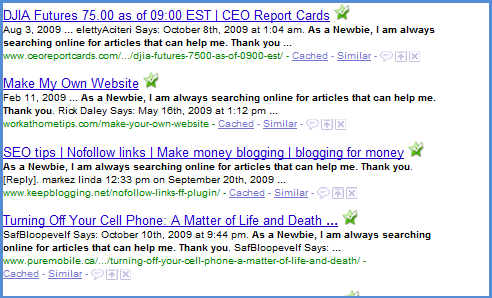Did I fall asleep? I turn my attention from Search for a few weeks (okay, so it’s really been a bit longer) and I return to find major companies running more than one campaign in paid search!
To many of you this may not be news; like I said, I’m playing catch up. Just the same, it’s new to me so let’s investigate and start with from the beginning as I think this is a huge change for Google and the industry.
Square one
In the beginning, Google restricted companies to one ad campaign on a given keyword. To most, this policy was irrelevant, smaller companies could neither afford more nor conceive of ways to run more campaigns on the same keyword. As a result, to some, it was a great equalizer; for big companies, big brands, deep pockets, and diversified conglomerates, running more than one campaign is a means of boxing out competition in search – forcing everyone to one per keyword prevents this.  Take, for example, a major travel site facilitating hotel reservations, car rentals, airline tickets, etc. On a search for “Hawaii travel” (I just got back from Kauai), a consumer wants a diverse set of options from which to choose; Google’s policy once ensured this, enforcing that search results present different alternatives. Now, major travel companies, so long as they promote distinct products or price points, can own two spots: Book a hotel in Hawaii; Cheap flights to Hawaii.
On one hand, this strikes me as a more appropriate marketplace; businesses have different products and services and should be able to promote them on relevant keywords. On the other hand, it makes it much more difficult for the small and self employed business owners who have neither the money, nor time, to play this game. Sure, the local travel agent could do the same but would they know how? Could they afford it? And really, how many major travel businesses can you count on two hands? Times 2 ads and the ad space is taken and small travel companies are out of the game.
Frankly, I’m not sure how I feel about it.
Sign of the Economic Times
What I find more interesting is the underlying implication. Why the recent change in policy? What would search revenue look like for the internet giant if they had not done this; not reduced restrictions on the search marketplace? To be sure, better or worse for advertisers, what the change means is more competition for ad space; driving up rates and revenue during a time when they were likely in decline.
What frustrates is that the change does more to support bigger companies that the surface suggests. I’ve long struggled with and investigated the idea that known brands have an advantage on Google because the impact of Quality Scores – clicks on ads factor into position relative to what you bid. A logical model for Google (they make the most possible by favoring ads/brands that drive more revenue) but unknown companies have to scratch their way to some recognition, while known brands, with the deeper pockets, pay pennies for the same real estate. Now, the big brands can own double the space while still paying less per click – they’ve just gained an exponentially increasing benefit over small businesses.
I suppose what frustrates more is the loss of what was effectively a great equalizer. While the one ad policy may or may not have been the right choice for Google and businesses at large, it did equalize the opportunity to acquire search real estate, in some way. I’m increasingly a fan, a champion, of companies like eBay, crowdSPRING, oDesk, and free web services that compete antiquated paid models. The later includes businesses like Amazon’s publisher service, iTunes, Skype, Campfire (alright, yes, Campfire is a paid service I just think its REALLY cool), Tokbox, and admittedly Outright.com and our partners.  The former make it easier and cheaper to find or promote products and services. All, level the playing field by eliminating barriers to entry and putting players on the field to compete based on skill, not (so much) dollars or influence.  Google’s just moved a step from that crowd and I’m disappointed. In a strange twist of fate, it occurs to me that Google, who owns Google Docs (free web services that do as much against Microsoft Office), has just pulled an Apple iPhone App Store move.


Is this something you saw in the wild, or is there a policy announcement that you can link to? Their double serving policy appears to be intact: https://adwords.google.com/support/aw/bin/answer.py?hl=en&answer=14179
As they note, they do occasionally make exceptions. It could also be a case of a violation that hasn’t been caught yet. There’s nothing in AdWords that prevents you from using the same keyword in multiple campaigns — Google just doesn’t display more than one ad at a time, so you are essentially competing against yourself.
Good question Mike, seen in the wild but confirmed with Google that the two ads showing at the same time on the same keyword is not a violation. The published policy clearly hasn’t changed; but, I’m working through my own possible campaigns now.
That’s exactly what I find intriguing; are you essentially competing with yourself? If you can own more of the real estate and promote distinct products or services, that’s of greater value than the direct ROI one would track from click to conversion. The same could, theoretically, be said of running the same commercial more than once on the super bowl or buying multiple billboards in your city.